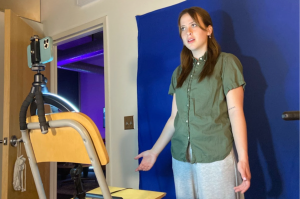
Chicago Public Schools parents and officials questioned the way special education was funded by CPS Wednesday amid the schools’ financial crisis, educators faced with increased mandates, leaving the most vulnerable kids behind with fewer resources.
“Since the special ed is not fully funded, there are literally kids sitting in classrooms with no teachers, not getting their bus services, not getting the services they deserve,” said Ald. Susan Sadlowski Garza (10th) during Wednesday’s meeting of the Chicago Board of Education. “Special ed teachers are leaving in droves from CPS.”
She speculates the increased procedures special education teachers must comply with, combined with lack of funding for special services could be the reasons for their departure. The state money previously allocated to the district as a whole for special education services is now paired directly with the individual school’s budget, according to the Chicago Board of Education. The principals and local school councils now have the discretion on spending, which may not always go to students with special needs.
“The special ed funding has never come out of the principals’ budget before but now it does,” Garza said. “And what happens is the most vulnerable kids are left behind.”
The alderman was particularly concerned about the shortage of Chicago’s special educators, citing that the city couldn’t fill its 151 open positions for special education teachers and that seven Roosevelt High School special education teachers left the school last year.
“My son has autism and I can’t home school him,” said Christine Palmieri, whose son studies at Blaine Elementary School. “But we’ve lost too many school psychologists.”
Even worse, Palmieri felt compelled to buy a GPS navigation system for her third grader because oftentimes, he would leave the classroom and no one would notice since teachers were often not in the classroom.
Troy LaRaviere, president of the Chicago Principals & Administrators Association and former principal of Blaine Elementary School, said the new school budget plans have impacted both special and general education services.
According to the survey conducted by his association, 27 percent of principals indicated that they had to sacrifice special education in order to meet the needs of their general education students; 72 percent indicated they were forced to sacrifice the resources for general education students to meet the needs of the special education students.
“This 27 percent to 72 percent proportional relationship shows that you either sacrifice one or the other,” LaRaviere said. He also said the combined funding had led to unfair choices, in which one principal had to “take away funding for 600 students in order to serve 40,” although he declined to identify the school.
Aside from the lack of funding, students who rely on Individualized Education Plans – a customized approach for students with special needs – ultimately are the ones who suffer from complicated IEP procedures.
City, state and federal mandates for educating students with special needs often interfere with the process, Garza said. In fact, one mandate requires special education teachers to report what a student is doing every 15 minutes.
“If you are looking over a kid with special needs, your every minute goes to that kid,” Garza said, condemning the mandate as “taking time away from that kid” and “not realistic at all.”
Karen Lewis, the president of the Chicago Teachers Union who arrived to the board meeting late, also questioned the procedures set by the city in her presentation to the Board.

“There is a 20-page form that you have to fill out on the computer to get an aide for a kid,” said Lewis, who questioned if that was actually illegal. “That’s the thing everybody has been coming to me with. ‘Why is it taking me this much time to get an aide, which is in my kid’s IEP?’”
Lewis’ presence in the Board’s meeting came after the CPS teachers Monday overwhelmingly voted for their second strike since Rahm Emanuel took office in 2011. The strike could start as early as Oct. 11, if the two sides still can’t reach an agreement over the teachers’ contract by then.
In response to Lewis’ concerns at the meeting, Frank M. Clark, president of the Chicago Board of Education, said the board would take her suggestions seriously.












Be First to Comment